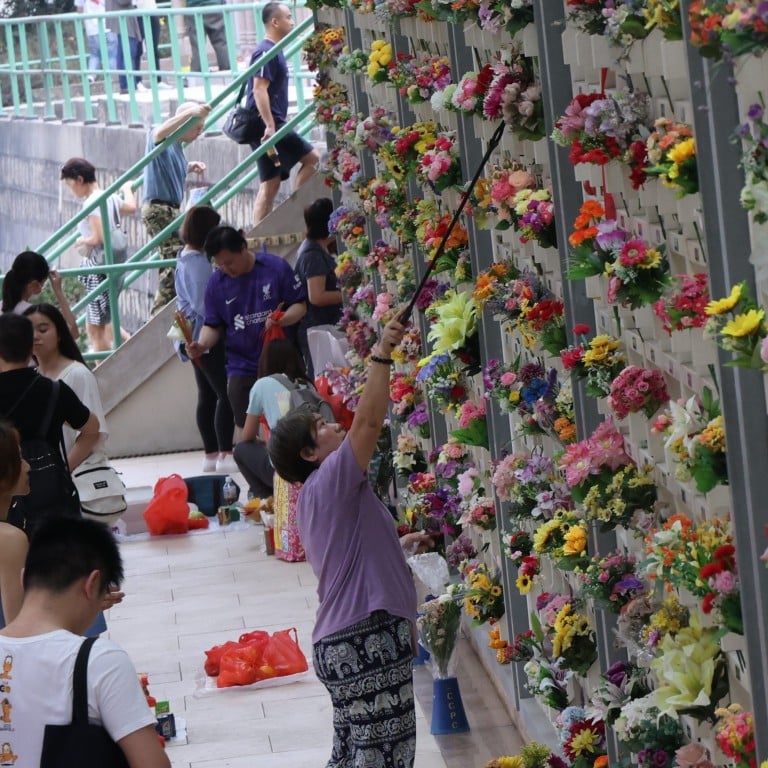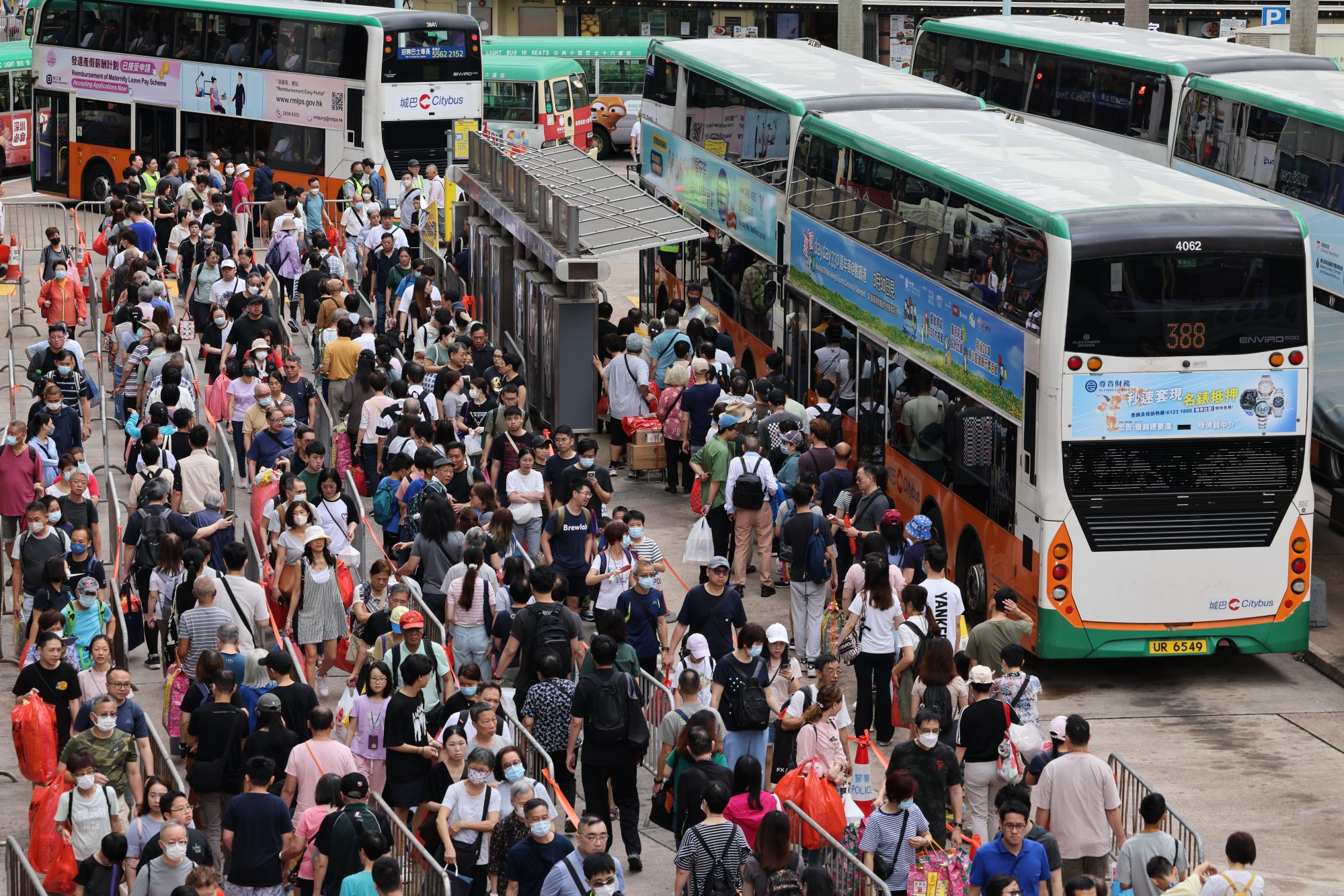
Ching Ming Festival: emigrating Hongkongers opting to send relatives’ remains overseas, industry veteran says
- Funeral logistics veteran says his company helped up to 150 families move their relatives’ remains overseas or back to city last year, double annual figure from 2019
- ‘Families do not move their ancestors unless they are emigrating. They are worried about whether anyone will come back to pay tribute,’ he adds
Alan Leung Wai-keung, manager of Hong Kong Funeral Logistics Services, on Thursday said the company helped up to 150 families move their relatives’ remains overseas or back to the city last year, double the annual figure before the emigration trend kicked off in 2019.
“The transfer of ashes has significantly increased. Families do not move their ancestors unless they are emigrating. They are worried about whether anyone will come back to pay tribute,” he said.
Leung said his company, which was established in 1996, generally helped to transport bodies from the city back to the deceased’s home countries, such as the Philippines, Indonesia and Nepal.
Hongkongers who died overseas were also being sent to the city as some older residents insisted on seeing their relatives’ bodies before any cremation took place, he said.
Leung said transporting a body to or from Europe could cost more than HK$100,000 (US$12,800), about 40 to 60 per cent higher than prices for Asian countries.
The industry veteran said some families wanted to move their relatives’ remains overseas, where they could buy a permanent cemetery space for as low as about US$1,000.
In comparison, Hong Kong had no public graveyards offering permanent burial spots and a place at a private cemetery could cost at least HK$1 million.
Some overseas-based Hongkongers hire people to burn offerings and incense on their behalf as part of the festival, which is also known as tomb-sweeping day. Anran Heritage Cultural Company, established in 2021, said it received about 60 bookings for such services from March to April this year, the most in the past three years.
The company’s founder, Sophia Chan Lai-chu, said most of her clients were emigrated Hongkongers, such as those living in the US and UK.
“Maybe it is because the families are busy after the border reopened or they find it hard to pick up the tradition after a few years’ hiatus,” she said.

Residents on Thursday headed out to pay their respects to deceased loved-ones, with lines forming at sites such as Po Fook Hill Columbarium in the New Territories, where a cordon was set up for those queuing on the slope outside the facility.
Over in Chai Wan, Cape Collinson Road was packed in the morning as families bearing flowers, paper money, candles and incense headed to nearby cemeteries.
Lai Wah-hei, 56, said he came every year to the Cape Collinson Chinese Permanent Cemetery with his family as three of his relatives were buried there.
“Hong Kong people put filial piety first. So we will visit and sweep the tombs in person every year no matter what,” he said.
But Lai said his sister had struggled to attend ever since she left for the UK three years ago.
Ching Ming Festival – tomb-sweeping day: what it means and how it’s marked
“Different countries have different public holidays. Especially with kids, you can’t really ask them to leave their schoolwork behind,” he said.
“But my sister and her family still managed to come back and visit graves during their holidays. Even if it’s not on the Ching Ming Festival, it only makes sense to come in person.”
So long as at least one relative remained in the city, the family would not consider hiring anyone to visit the tomb on their behalf, he noted.
In the morning, more than 10 families making the trip to the cemetery said the traffic had been manageable, adding they appreciated the installation of an escalator last October to help visitors get halfway up the site’s slope.
Hong Kong expects 11 million border crossings at Easter and Ching Ming Festival
Among those paying their respects was banker Theodore Li, who said he was open to hiring someone to tidy up the family’s cemetery spaces if it became necessary.
“I don’t mind considering hiring tomb sweeping services in the future. It is more convenient. The grief and love is in your heart anyway,” the 28-year-old said.
“But I don’t think my senior relatives will allow it. It is not a thing for their generation.”
Li said his family came together every year for the festival and planned to visit another relative interred at Wo Hop Shek Crematorium in the New Territories before going to dinner.
“This is the second year that I have spent the Ching Ming Festival here in Chai Wan to make offerings for my grandma. It is less crowded than I thought,” he said.
Some also took trains or cross-border coaches to the mainland to pay their respects to ancestors.


